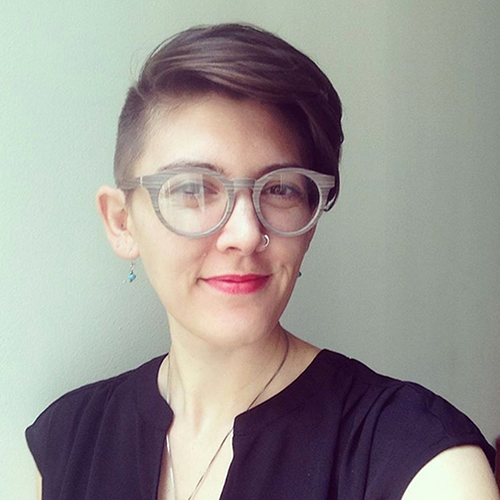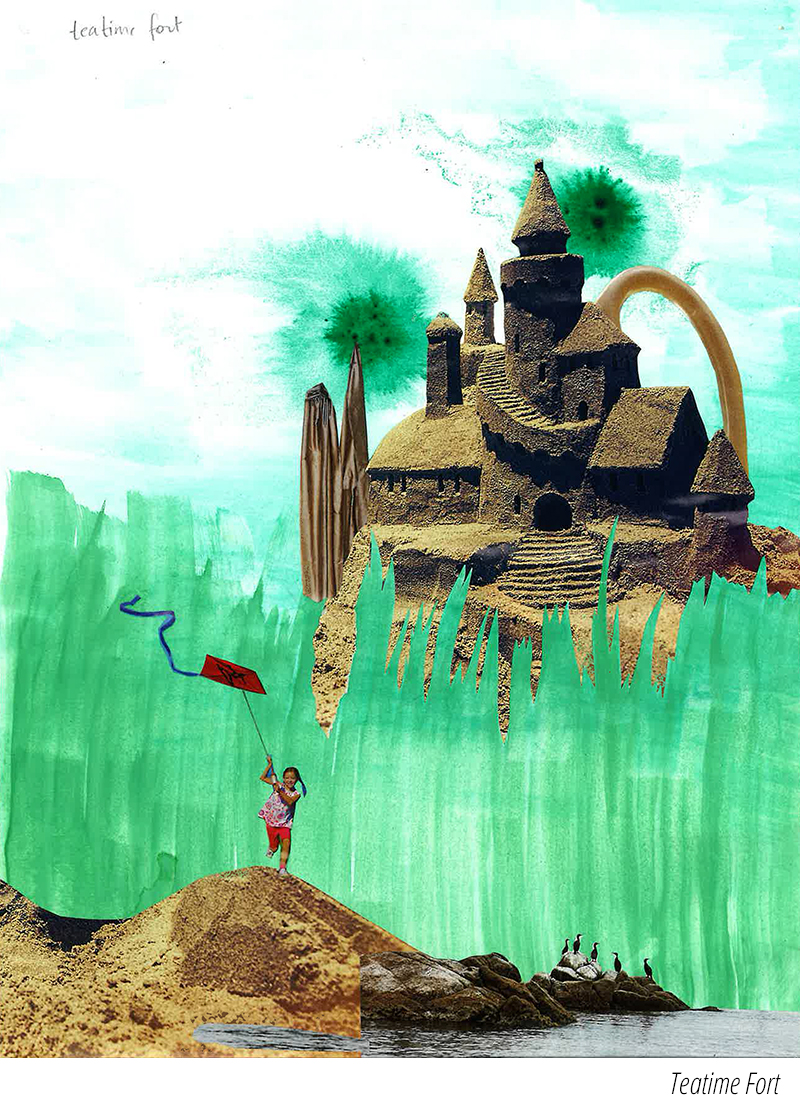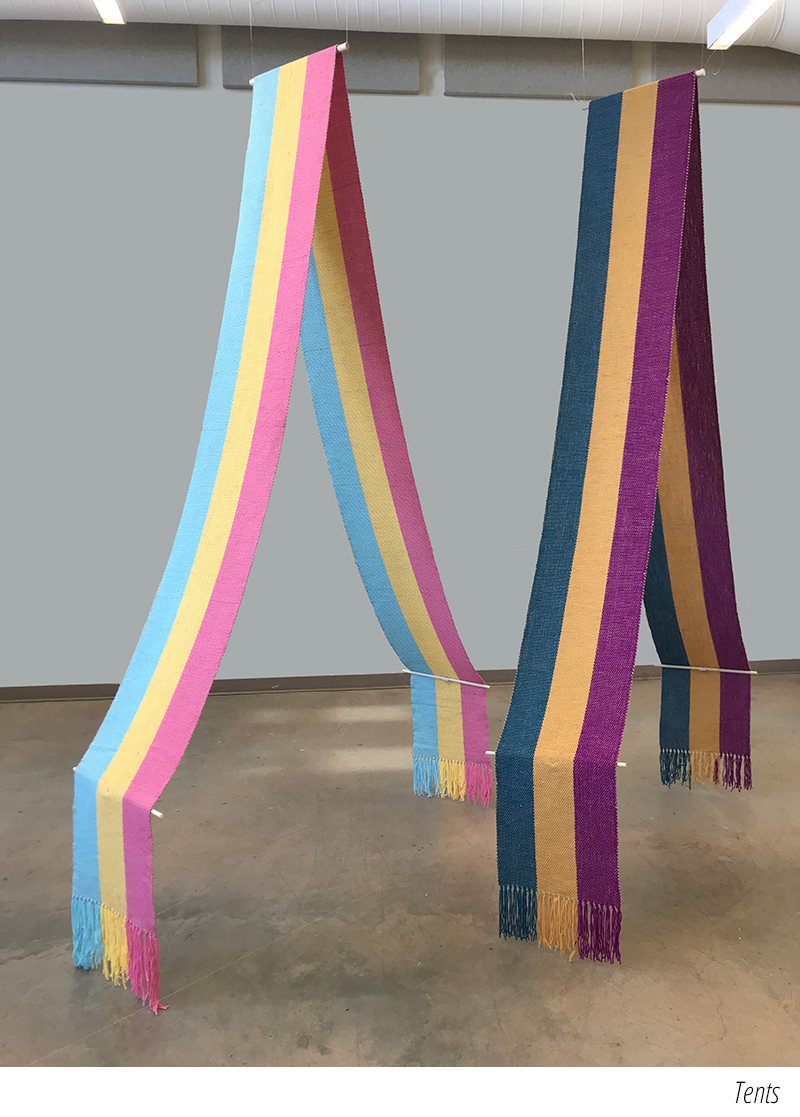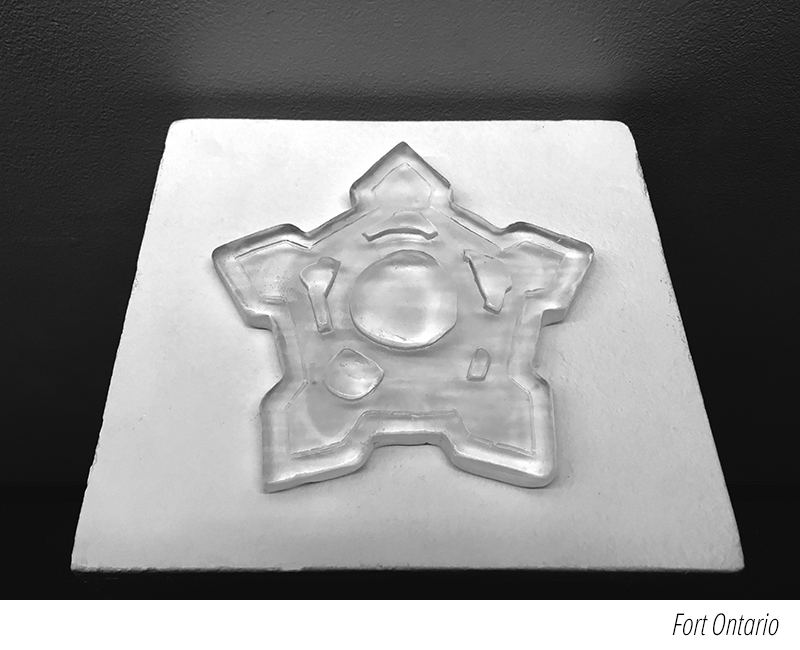
Tell a little bit about how you first got into creating art.
Like many artists, I feel like I've always been an artist. I've never resisted the impulse to create. But I decided to professionalize as an artist in my thirties. I was a decade into a career as a writer and needed a change, so I got involved with my local arts community and took my art-making more seriously. I started an artist-run gallery to build community, entered competitions, started exhibiting work regularly in other venues, and got a job as a gallery director. A few years later, I went to grad school, got an MFA, and began teaching and making art full-time, which is what I still do.
What artists or movements have had an impact on you?
Yoko Ono has had a big influence on me. Her sense of play inspires me, and I've found grounding in her resilience — that she has always made hopeful, joyful work despite experiencing some major traumas. I also admire her ability to move between mediums, from poetry to performance to music to sculpture, and maintain her work as a peace activist.

It's important to me that I am always experimenting and learning, interrogating my beliefs, and questioning givens
What themes does your work involve?
Conceptual themes that appear in my work include democratic ideals, like equality, safety, and freedom, and observations on how we fail to live up to those ideals through the way we treat the natural world and each other. I'm interested in implicating myself and my audience.
My current work uses forts as a vehicle for talking about these contradictions since forts embody both childlike innocence and play as well as real-world violence, displacement, and dispossession.
What is important to you about the visual experiences you create?
I want my work to open up positive mental spaces for questioning norms. It's important to me that I am always experimenting and learning, interrogating my beliefs, and questioning givens. Through the visual experiences I create, I hope that viewers can find pleasure in questioning things they've previously taken for granted.

I think artists are essential beacons in society
What is the significance of medium and color?
I am drawn to the materiality of objects and media. Sometimes I work with achromatic media like silver gelatin prints, photocopies, clear glass, ink, and graphite because they remove color and thereby provide some abstraction and space for interpretation; sometimes I work with bold, saturated palettes on paper or in fibers to arouse emotions and grab attention; sometimes I write to shift focus to internal dialogs and wordplay; and sometimes I work with invisible media like sound hoping to override the visual world. I do not stay in one lane in terms of medium and color.

Do you work from memory, life, photographs, or from other resources? Describe your creative process.
My creative process varies by project, but in general I start with an idea or material I want to explore and either research concrete things related to the idea, then get those things to play around with, or I research ways to use the material and play around with the material. Through studio play, I find what materials and processes work for an idea, then I dig in with multiple iterations.
What is your favorite art accident? Did it change your perspective?
My favorite art accident was discovering that zines were a thing. I had been making little quirky self-publications continually since I was a child and passing them out to friends, but I didn't know anyone else who did that. Then during my first semester in grad school, I was given the job of writing condition reports for a large donation of items to the university's special collections. The donation was hundreds of zines! I was enthralled! It gave me permission to use self-publication as a legitimate way to share art. I started making zines and connecting with other zinesters, and zine-making has been a part of my creative practice ever since.
Do you have any artistic goals for the future that you would like to share?
Keep going. Feel lucky. :)
What do you consider the role of an artist today?
I think artists are essential beacons in society. We observe, we stare, we obsess, we get passionate and bothered, and we tell everyone else, "Hey! Pay attention to this thing over here!" We also model going against the grain, and we make spaces for sublime things, mundane things, and weird and uncomfortable things to be considered valuable.


